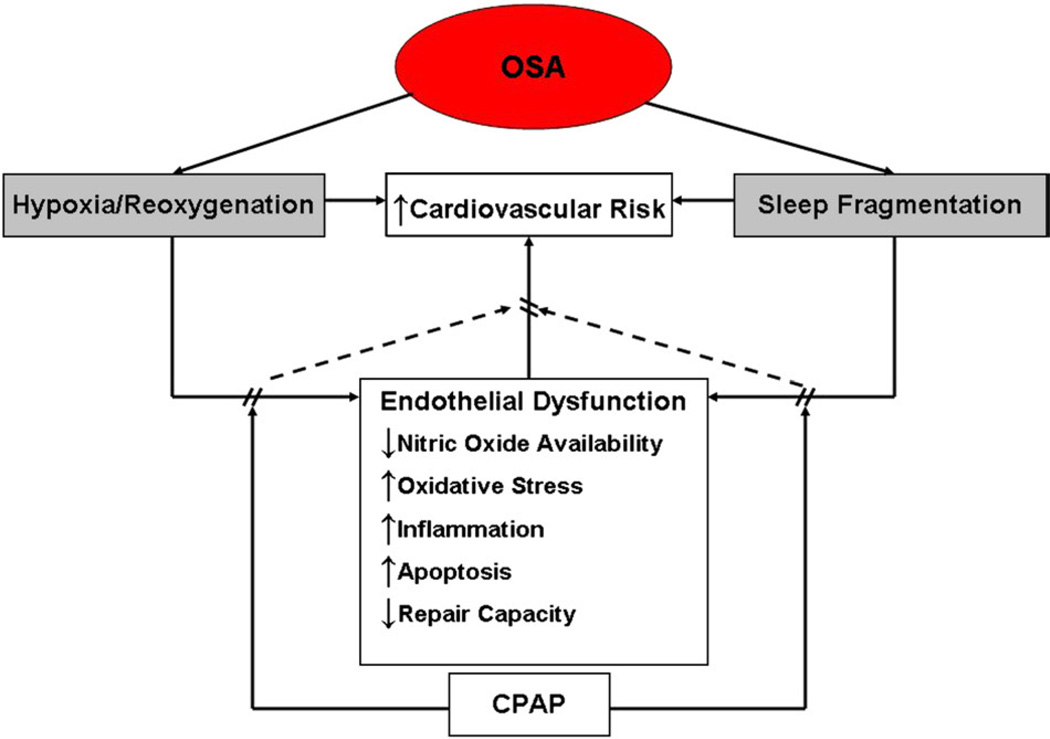Fig 1.
Intermediary mechanisms associated with endothelial dysfunction in patients with OSA that potentially contribute to increased cardiovascular risks. Repetitive hypoxia/reoxygenation and sleep fragmentation associated with transient cessation of breathing in OSA adversely impact endothelial function by promoting oxidative stress, inflammation, and apoptosis, and reducing NO availability and repair capacity. Continuous positive airway pressure therapy ameliorates these alterations. Continuous positive airway pressure–induced reversal of vascular endothelial dysfunction may reduce and/or reverse increased cardiovascular risk in OSA.

